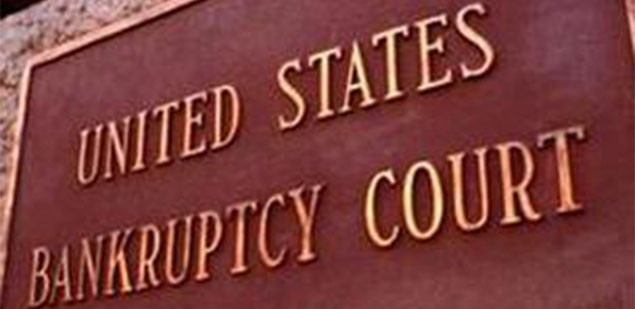
Business Bankruptcy and Insolvency
Structured paths to your company’s financial future
In today’s economic climate, bankruptcy is increasingly used as an effective tool to achieve business goals. Chapter 11 can provide a business with numerous financial options to help it survive and ultimately thrive in the future. When it becomes necessary to wind down the company and liquidate assets, Chapter 7 may sometimes be the best available alternative.
The bankruptcy lawyers at Scroggins & Williamson, P.C. have earned a sterling reputation in the legal industry for their ability to efficiently guide businesses through the bankruptcy process. Firm attorneys are known and respected by bankruptcy judges, other bankruptcy attorneys, trustees, and other parties in the bankruptcy community.
Corporations, limited liability companies (LLCs), partnerships, and individual business owners can file for bankruptcy under the U.S. Bankruptcy Code’s Chapter 7 or Chapter 11. A Scroggins & Williamson, P.C. attorney can help you determine which option suits your business and your situation.
The benefits of Chapter 11
Depending on the characteristics of the company seeking debt relief, a bankruptcy attorney can advise you whether Chapter 11 is right for you. Benefits of Chapter 11 bankruptcy include:
|
|
Planning for reorganization
Collection suspension
Once the debtor files, most collection activities against it are suspended for a period of time. This automatic stay gives debtor and creditor some breathing room. The debtor may obtain financing to continue its operations. The debtor may also use, sell, or lease property. Court approval may be required for transactions outside the normal course of business.
The creditors’ committee
The debtor typically proposes a plan for reorganization within the first 120 days of filing bankruptcy. A reorganization plan may include creditor payment from future profits, partial or full asset sales, a merger, or recapitalization.
The U.S. Trustee may form a committee of the debtor’s largest creditors holding unsecured claims. The U.S. Trustee may also appoint additional committees of creditors or equity security holders. Terms of a proposed plan are often negotiated with these official committees. Scroggins & Williamson, P.C. has served as counsel to official committees in numerous Chapter 11 cases.
Asset sale
Distressed companies may desire to sell their assets free of liens. However, outside bankruptcy, post-sale disputes with asset purchasers often arise. Asset purchasers from distressed companies often prefer the bankruptcy court to approve the sales. Scroggins & Williamson, P.C. can assist in these situations. The firm’s lawyers have represented both sellers and buyers in a large number of high profile asset sales involving distressed businesses.
Plan approval
Legal counsel for the committee and the debtor typically negotiate the terms until agreement is reached. Ultimately, the plan is submitted to the creditors for a vote, and the bankruptcy court either approves or rejects the plan. The goal is for the debtor company to have an opportunity for successful continued operation. As a result of the confirmed plan, the debtor stands to have reduced debt, a reorganized business, and a brighter future.
The benefits of Chapter 7
A clean slate
If your business is not in a position to benefit from reorganization, filing under Chapter 7 may be your best option for debt relief. An appointed trustee liquidates assets of the bankruptcy estates and distributes proceeds to creditors.
Filing the petition
Filing Chapter 7 bankruptcy begins with filing a petition, schedules, and statement of financial affairs in bankruptcy court. You must provide to the court—
- A full list of your business’s creditors
- The amount and type of each of their claims
- The source, amount, and frequency of your company’s income
- A list of all your property
- A list of all your monthly expenses
Meeting of your creditors
Similar to Chapter 11, your filing invokes an automatic stay to protect you. You engage in a meeting with your creditors, formally known as a § 341 meeting, 20 to 40 days after you file. During this meeting you must answer any questions put forth by your trustee and creditors.
Although this may sound simple, it is not. There can be complications along the way. Consult with a proficient bankruptcy attorney to learn whether Chapter 7 is your best financial solution for debt relief. If it is, the lawyers of Scroggins & Williamson, P.C. can help guide you through the process and ensure you meet all requirements and deadlines.
Protecting the rights of creditors
Scroggins & Williamson, P.C. protects both debtor and creditor rights. The firm has represented secured and unsecured creditors in bankruptcy cases. Also, the firm routinely represents creditors as defendants in post-bankruptcy lawsuits called adversary proceedings. Experienced attorneys help clients file answers to the debtors’ allegations in their complaints. For more information, see Debtor and Creditor Rights.
Professionalism and experience
Businesses in need of professional, experienced bankruptcy counsel rely on the attorneys of Scroggins & Williamson, P.C. for their bankruptcy and insolvency needs. The firm welcomes your most pressing problems and the opportunity to resolve them. Call Scroggins & Williamson, P.C. at 1-404-893-3880 or contact the firm online.
Serving Georgia and the Southeast U.S.
